The Lovers of Sarajevo (1993)
Gênero : Drama
Runtime : 22M
Director : Marcel Hanoun
Sinopse
Deeply moved by the Bosnian tragedy and, more specifically, by the nightmare that the inhabitants of Sarajevo have been living for two years, the filmmaker Marcel Hanoun, like other great creators (from Susan Sontag to Juan Goytisolo), wanted to give testimony. He has made a superb film-poem in homage to this young Bosnian couple (belonging to two enemy communities) that was killed by an anonymous sniper on Liberty Bridge, in the summer of 1993, as they were trying to flee from the besieged city. ("Le Monde Diplomatique", 1994)
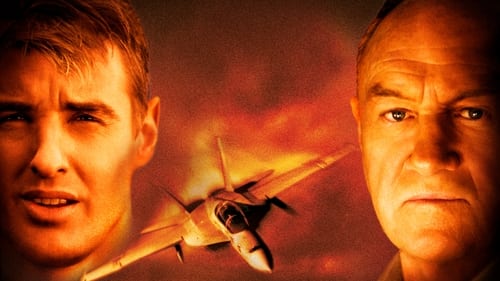
Chris Burnett é um aviador naval experiente que está frustrado por ter sido afastado das missões de combate. Durante uma missão de reconhecimento, Burnett fotografa algo que deveria ser mantido em sigilo e, por isso, tem seu avião abatido em território inimigo. Ele passa a ser perseguido por agentes de uma implacável polícia secreta e por tropas hostis. Com o tempo se esgotando, o almirante Reignart desafia ordens superiores e organiza uma desesperada missão de resgate.
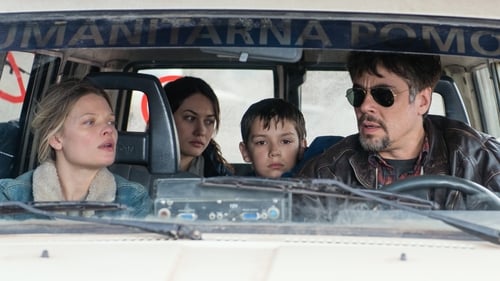
Acompanhada pelos experientes Mambru e B, a trabalhadora humanitária novata Sophie corre contra o tempo para evitar que uma comunidade isolada fique completamente sem água. No caminho do grupo estão burocratas, milícias, bandidos e Katya, ex de Mambru.
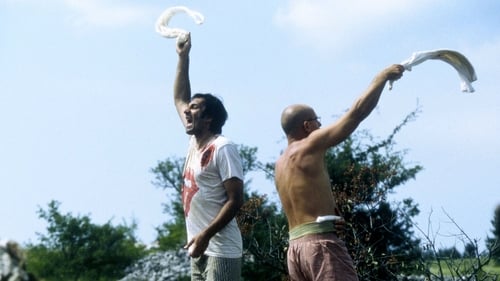
Durante a Guerra da Bósnia, dois soldados, um sérvio e outro bósnio, acabam isolados em uma pequena trincheira, junto com um terceiro soldado, que está caído sobre uma mina - sendo que ninguém pode matar ninguém ali. Todas as partes do conflito ficam completas com a chegada de mais duas pessoas: um representante da ONU, para tentar resolver o impasse, e uma jornalista, para jogar lenha na fogueira.
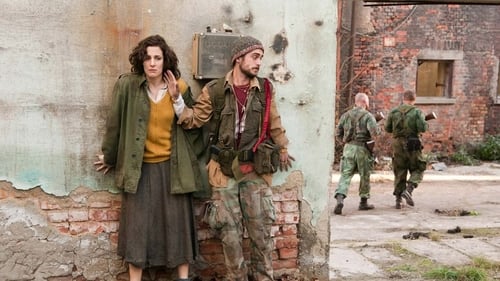
A trama romântica se desenrola durante a Guerra da Bósnia, conflito armado que aconteceu nos Balcãs entre 1992 e 1995 envolvendo a Bósnia, a Sérvia e a Croácia. Goran Kostic faz um sérvio que se apaixona por uma muçulmana em pleno conflito. O veterano Rade Serbedzija (24 Horas), nascido na Croácia e de etnia sérvia, faz o pai do protagonista.
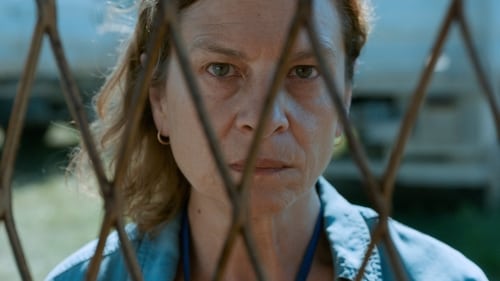
Aida é tradutora da ONU na pequena cidade de Srebrenica. Quando o exército sérvio assume o controle da cidade, sua família está entre os milhares de cidadãos que procuram abrigo no acampamento da ONU.
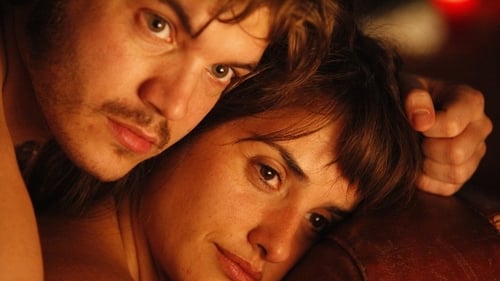
Gemma visita Sarajevo com seu filho, Pietro. Há 16 anos atrás eles escaparam da cidade assolada pela guerra, quando o pai da criança ficou e acabou morrendo. Enquanto ela tenta reparar a relação com o filho, uma revelação força Gemma a encarar a perda, as consequências da guerra e o poder de redenção do amor.
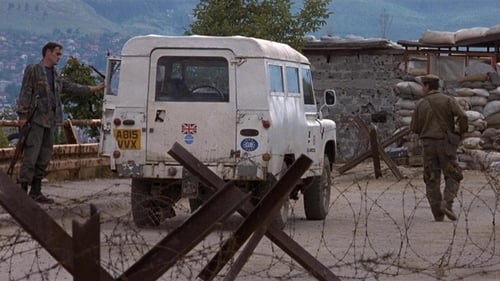
Follow a group of international journalists into the heart of the once cosmopolitan city of Sarajevo—now a danger zone of sniper and mortar attacks where residents still live. While reporting on an American aid worker who’s trying to get children out of the country, a British correspondent decides to take an orphaned girl home to London.
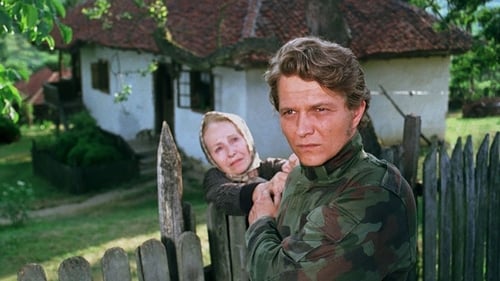
O ano é 1980. Halil, um muçulmano, e Milan, um sérvio, são amigos na Iugoslávia. Os dois meninos cresceram juntos. Eles moravam perto de um túnel inacabado, o Túnel da União e da Fraternidade, que deveria ligar Belgrado à Zagreb, servindo como símbolo da Iugoslávia unida. Doze anos depois, estoura a guerra da Bósnia e ambos agora encontram-se em lados opostos.
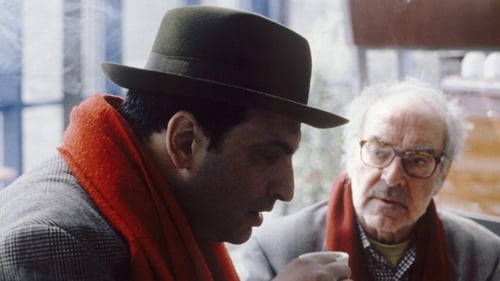
Um filme em três partes: Inferno, Purgatório e Paraíso. A primeira parte é composta por imagens de guerra. Aviões, tanques, batalhas, explosões, tiros, execuções, países devastados, aldeias destruídas. A segunda mostra Sarajevo actualmente, martirizada como tantas outras. Personagens reais e imaginárias. Na última, uma jovem mulher - que vimos no Purgatório - sacrifica-se, encontra a paz na água, numa pequena praia guardada por Marines norte-americanos.

If the conflict in Bosnia has become something of a forgotten war, it's not for the want of trying from the immensely powerful BBC film Warriors, the story of five young soldiers and their harrowing experiences in the region.

The horrors of war are examined from the view points of lifelong friends (Linus Roache, Vincent Perez), who end up on opposing sides in the civil war in Sarajevo. One is an expert marksman, who trains the snipers used to terrify the city and the other becomes a freedom fighter, who rejects his friend's offer to gain an escape from the city. As might be expected, the two eventually have to face-off against one another.

Em 1993 a guerra da Bósnia está em seu momento mais crítico e vários refugiados da Iugoslávia estão chegando na Inglaterra. Quatro típicas famílias londrinas terão suas vidas transformadas pelo conflito e pelos refugiados da guerra.

The war crimes trial of Ratko Mladic, accused of masterminding the murder of over 7000 Muslim men and boys in Srebrenica in the 90s Bosnian war, the worst crime in Europe since WW2.

A detachment of the Polish IFOR forces in Bosnia is led by Major Keller, who is being investigated for insubordination during a patrol in Srebrenica. The investigation is to be led by two arriving officers - Lieutenant Czacki and Major Kusz who will also replace Keller as CO. When the camp's RTO receives a communication from a downed Norwegian chopper, Keller ignores his standing orders and leads a platoon to rescue the crew.
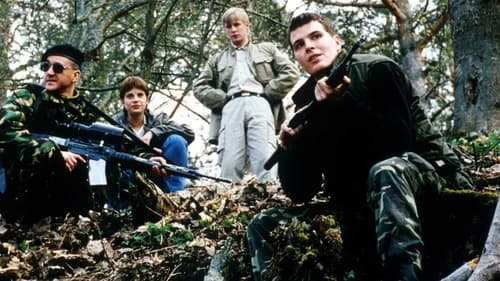
Jacob, a farm boy from Denmark, joins U.N. Brigade's peacekeeping force in Bosnia, where he witnesses refugees trying to escape their war-torn villages. There, Jacob is befriended by Sergeant Holt, a cynical soldier.

Jabir, Usama and Uzeir are three young brothers in a Sunni family of shepherds. Since childhood, their father Ibrahim has rigidly trained them in the principles of the Quran and has filled their minds with stories of the Bosnian War.

Kym, an Australian tourist, decides to travel to Bosnia. Her guidebook leads her to Višegrad, a small town steeped in history, on the border of Bosnia and Serbia. After a night of insomnia in the 'romantic' Hotel Vilina Vlas, Kym discovers what happened there during the war. She can no longer be an ordinary tourist and her life will never be the same again.

Paul Pawlikowski's award-winning documentary on life behind Serbian lines in Bosnia. The film observes the roots of the extreme nationalism which has torn apart a country and provides a chilling examination of the dangerous power of ancient nationalist myths.

Middle-aged cinephile and film projectionist Pera still lives with his mother - and best friend - Mara, in Belgrade. It's 1999 and when NATO bombs start raining down on Serbia, the two of them become refugees. After a surreal journey, they end up in New York, where Pera realizes that he can no longer do the old job he loved so much. While he and Mara were struggling to survive, the new age of digital projection was born. Then Pera stumbles upon some discarded projectors and his new mission in life becomes clear: he will travel around and show people the magic of Real Cinema - the magic that can only be created by celluoid, mechanical projectors, the silver screen and flickering light.

At the end of WWI, the treaty of Versailles established the conditions for peace in Europe. The aim for the victorious powers was to make Germany pay reparations, and to guarantee a future without war. Yet a decade later, the denunciation of 'Versailles' became a powerful lever for the nazis to obtain power as these reparations would mark the beginning of the humiliation of the German people, and nurture a feeling of having been bestowed a hopeless future. In the 20 years that follow the end of WWI, the issue of reparations and responsibility will effectively poison international relationship. The treaty negative impact goes well beyond WWII as the new European borders it implemented led to many conflicts during the twentieth century. This documentary shines a light on the causality between the decisions taken with the treaty of Versailles, and the ensuing events of the century.















